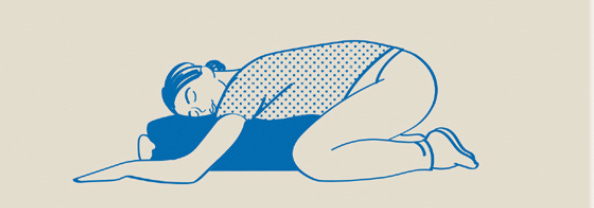Geeky wellbeing favourites: September
Yoga, swimming, dancing, walking for happy minds and bodies
Enjoying this newsletter?
When I was younger, I was basically buried in a book (or, guilty, watching TV) and to my mum’s despair never engaged in much physical activity at all – except for the 30 minutes a week hitting a ball with a tennis racquet while staying as still as possible, or walking up and down a basketball court while chatting with friends. If you want creative excuses to avoid PE, I have a whole back catalogue (always on my period when we were swimming, can’t do long jump because I wear contacts and the sand gets in my eyes, can’t run because I once fainted).
Eventually, I started going to the gym to punish my body for being bigger than I thought it was meant to be, running on a treadmill while staring at the floor or mindlessly pushing weights around. It wasn’t until I discovered yoga that I realised that movement can feel good and that it comes with mind benefits too (don’t worry, I won’t bore you with my story of why yoga changed my life).
These days, I crave movement – yoga, walking, swimming, dancing, even running sometimes. I crave it because I enjoy how it feels on my body and because I need it to clear my head. I need it to feel good physically and mentally.
I have spent the past 2 weeks doing my favourite activity in the world, swimming in the sea (not yoga, shock horror!), and I feel amazing. Plus trying new ways of moving my body that may at first feel a little scary (hello stand up paddleboarding!).
So I’m celebrating by dedicating this month’s wellbeing favourites to the joy of movement. Enjoy!
Listen
I’m one of the many people who followed the “Science of wellbeing” course on Coursera last year (which I am pretty sure was called the “Science of happiness” when I signed up to it? Anyone else?). The Happiness Lab podcast is by the same creator, Professor of Cognitive Neuroscience Dr Laurie Santos, and has a selection of topics on what really makes us happy.
Of particular interest is this episode, which tackles the joys of movement and the wonders this can do not just for our physical health, but also for our mental health (plus, the episode is all about yoga).
Read
I was a little torn about whether to recommend this one – “Mind and body” is one of the latest School of Life books, and the title couldn’t be more of a perfect fit for this newsletter and my interests.
There is little theory and philosophy in this; the book has practical tips on how to use the body as a way to calm the mind in different scenarios (eg, my personal favourite, excessive worrying about death). If you can get past some of the really weird ones (like pillow fights, wtf?), there are some really intriguing things to explore here.
Practice
Ok, this might be all about the joys of movement, but I’m going to go for a yoga nidra again because, well, why not?
I tend to go for more non-school-specific yoga nidras but I quite enjoyed this one by the Stillpoint that follows the Satyananda style (especially the imagery).
Yoga science highlights
Not a lot to report this month, but here are a couple of studies that caught my eye:
Yoga nidra reduces stress in teens – Practicing yoga nidra reduces total stress as well as other stress domains like stress associated with home life, teacher interaction and school performance in 14 to 16 year olds – this reduction was significant when compared to same-age children who did not practice yoga nidra. Caveat: I don’t have access to the full article so I actually don’t know much about the study design, including what the sample size was. But the findings are consistent with another study I’ve written about before.
Yoga for high blood pressure – A yoga intervention that comprises postures (asana), breathing exercises (pranayama) and meditation significantly reduced blood pressure compared with the control group. Both groups (145 participants with high blood pressure in total) received advice on dietary and lifestyle modification (ie to walk 30 min a day and eat healthy) and were also treated with blood pressure medication.
Yoga better than aerobics for anxiety – Does anyone have access to this article? Would love to read it as the abstract says nothing but implies a lot.
You may have missed
It’s been a bit quiet on the blog recently while I sort out my head, but here’s one recent post plus some additional highlights from the archives.
Burned out? Try yoga – Working from home over the past 18 months has brought some challenges, especially in maintaining work–life balance. Could yoga help tackle stress and burnout and keep us productive and full of brilliant ideas?
Stress, gene expression, inflammation, and where yoga may fit in – Mind–body practices like yoga, tai chi and mindfulness meditation cause changes in gene expression that damper inflammation – which may help to keep the immune system in balance.
Yoga as an antidote to depression – Physical exercise can do wonders for mental health, and mindful practices like meditation and breathing techniques have the same effect. The beauty of yoga is that it combines the two, which might be at the crux of its effectiveness.
What do depression, inflammation and yoga have in common? – If you were to ask me what was the one thing I learned in the past year that blew my mind it’s that there’s a link between depression and inflammation. And this might, at least in part, explain why yoga practices can be beneficial for depression.








